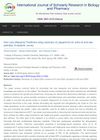Data-Driven Analysis to Understand Long COVID Using Electronic Health Records From the RECOVER Initiative
April 2023
in “
Nature communications
”

TLDR Long COVID patients have more health issues than non-infected people.
This study analyzed post-acute sequelae of SARS-CoV-2 infection (PASC, or long COVID) using electronic health records from two large Patient-Centered Clinical Research Networks, INSIGHT and OneFlorida+, covering 11 million patients in NYC and 16.8 million in Florida. Using a high-throughput screening pipeline, the study identified a higher incidence of various diagnoses and medications in patients 30-180 days post-infection compared to non-infected patients. Notably, more PASC diagnoses were found in NYC than in Florida. Conditions such as dementia, hair loss, pressure ulcers, pulmonary fibrosis, dyspnea, pulmonary embolism, chest pain, abnormal heartbeat, malaise, and fatigue were consistently observed across both cohorts, indicating potentially heterogeneous risks of PASC in different populations.



